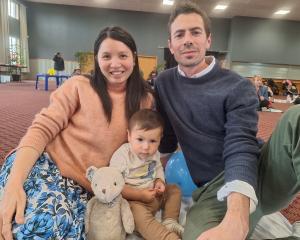Central Otago Health Services Ltd chairman Russell McGeorge said a proposed 5% funding cut from the Southern District Health Board (SDHB) would have a ''huge effect'' on Dunstan's services and was the catalyst for a series of public meetings which begin next week.
''We'll be informing the community about the cuts and the effect it will have and hopefully we'll send a signal that the Central Otago and upper Clutha community is not prepared to have this done to our organisation,'' he said.
Meetings will be held in Alexandra on Wednesday, Cromwell on Thursday and Wanaka on Tuesday, May 26.
''Dunstan is in a unique situation. We recognise the DHB is in real trouble and we need to take a share of the pain, but on the other hand we want a recognition there's population growth in this area and a need for appropriate funding.''
Dunstan received funding for 24 inpatient beds, Mr McGeorge said. SDHB chief executive Carole Heatly said board representatives would attend the public meetings.
The board's funding of the Central Otago health company had grown from $6 million in 2006 to $9.47 million today, an increase of 58%, she said.
As well, the DHB invested $420,000 annually to support the CT scanner purchased through public donations.
''Contract negotiations have yet to be finalised. However, ongoing discussions with Central Otago Health Services Ltd aim to clarify why the proposed funding reduction would lead to the significant cut in services signalled by COHSL.
''Southern DHB is required to live within its means and this means reducing expenditure across the whole sector in order to reduce our financial deficit. Negotiations are under way with providers, including the DHB hospitals, about how to reduce expenditure by 5% next year,'' Ms Heatly said.
In a press release yesterday, the Association of Salaried Medical Specialists executive director Ian Powell said the cuts would be an ''unbelievable blow'' for Dunstan.
''This is what happens when DHBs contract out rural hospitals and then abrogate their responsibilities for ensuring they are properly funded. The cost of providing health services is then shifted - unfairly - on to the community.
The Resident Doctors' Association also criticised the board. Rural communities facing health funding cuts were paying for the board's ''poor performance'', national secretary Deborah Powell said.
Rural hospitals ''punch above their weight in delivering essential services closer to the patient'' and those services were now threatened because of the funding cut, she said.
Waitaki District Health Services Ltd last night privately met with health groups and organisations to discuss what a 5% cut in funding could mean for the Waitaki district.
The Waitaki District Council-owned company, which owns and operates Oamaru Hospital, meets regularly in a Health Forum with the groups, but the focus last night was on the funding cut, which it opposes.
Company chairman George Berry said savings had already been made in Waitaki and any further cut would result in a significant downgrade in health services.
More details from the company on what that could be are expected to be made public later this week.














